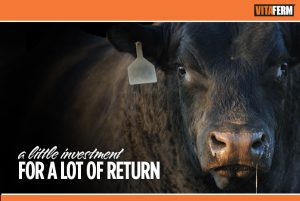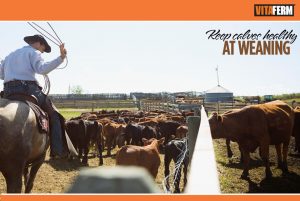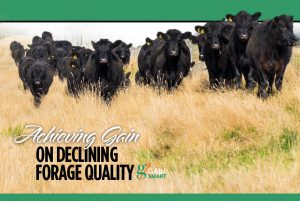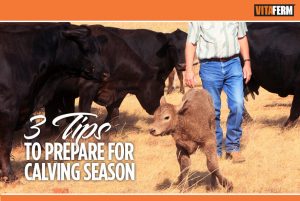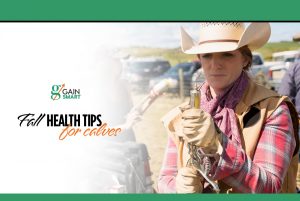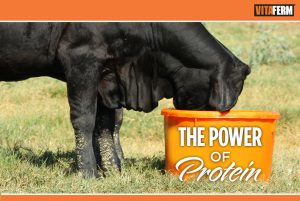In south central Iowa, there is a cattle operation that covers all aspects of management. For Isaiah Shnurman, owner of SP Genetics and Shnurman Sire Services at Bevington, Iowa, managing his cattle and his client’s cattle starts with proper nutrition. “Managing nutrition is very important to our overall operation,” said Shnurman, who runs his own […]
Month: September 2017
Keep Calves Healthy During Weaning
Temperatures are cooling, mama cows and their calves are bawling for each other across the fence line. Weaning time is here, which adds stress to the calves and their immune system. You can keep them healthy by making sure their respiratory and digestive systems are not compromised during this stressful time in their lives. Ensuring […]
How to Achieve Gain on Declining Forage Quality
Grasses decrease in quality as they mature and the grazing season progresses. When the hottest days of summer arrive, cool-season grasses go into a dormant stage, and their quality declines tremendously. Forage availability is usually sufficient, but the nutritional value of the mature cool season grasses is lower. Warm season grasses will produce between 65 […]
3 Tips to Prepare for Calving Season
You’ve been waiting nine months to see if your cattle nutrition and breeding decisions were on track and D-day is almost here. Kevin Glaubius, Director of Nutrition and Regulatory Support at BioZyme® Inc., offers three tips to make sure you are prepared for this calving season. 1. Make Sure Your Calving Kit is Ready There […]
Health Tips for Calves This Fall
Experience tells us that fall can be a treacherous season for keeping calves healthy. Calves come into the season stout, thrifty and with the expectation of doing well. But changing weather conditions, management systems and nutritional programs can catch the calves off guard and send them into a tail spin of poor health and performance. Planning and implementing a complete program […]
The Power of Protein in Cattle Diets
Protein is essential within the diet of a ruminant to supply the ammonia needed for microbial growth and to provide the amino acids needed for absorption from the small intestine. A deficiency in protein can limit microbial activity, microbial protein synthesis and rate of digestion. All these can in turn impact feed and energy intake. […]
